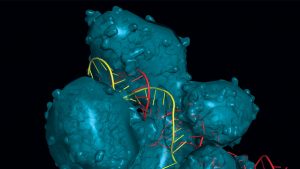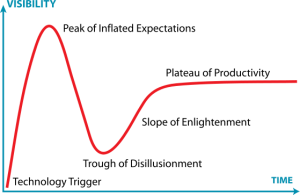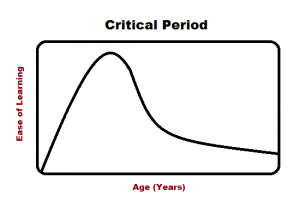Enzymes are small molecules in our bodies that are catalysts, which act as helpers to make a chemical reaction happen faster. These molecules can be affected easily when there are cancerous cells and molecules present if the environment changes, such as reduction in efficiency or loss of function. Since enzymes are involved with just about everything in our body, almost every disease affects enzymes.
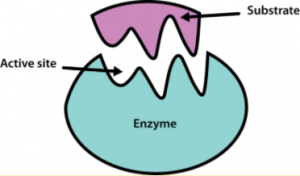
A picture of an enzyme at work. The enzyme binds with the substrate at the active site to produce a new molecule. Source: Peter K. Robinson.
What if there was a way to track enzyme activity?
Well there is! There are biological probes that can track the progress of enzymes and the current probe used to detect biological molecules is called the FRET probe. However, an even better probe known as the cFRET (Concentric Forester Resonance Energy Transfer) probe has been invented by Dr. Russ Algar. In his 2015 research, he specifically tested if the cFRET was capable of tracking enzyme progress, and it worked great!
This means that simply by tracking enzymes, you could detect something awry in your body. The cFRET probe works by using a luminescent or glowing core, known as a quantum dot, and having two spokes with dye in them. These dyes then bind to the molecules that you’re trying to track, in this case, the substrate and the product.
The cFRET isn’t the only application of quantum dots. Here is a video that talks more about the quantum dot:
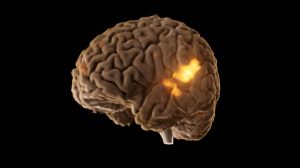
The tumor in the brain matter is glowing and is now easy to see and identify. Source: The Perelman School of Medicine at the University of Pennsylvania via The New Mind Journal
Once the probes are added into the body, they can travel throughout it and attach to the cells and molecules you are targeting. These molecules then begin to glow.
Another great application of these probes is in the topic of personalized medicine. Meaning that even if two people are diagnosed with the same cancer they will each still have a slightly different version of it. These different types can also be determined by the cFRET probe. By attaching specialized molecules to the probe’s spokes we will be able to track the progress of each individual person according to the molecules in their body. Dr. Russ Algar talked about the usage of the cFRET probe and its medical applications in this podcast:
This new technology could be revolutionary in the diagnosis of various diseases. By tracking enzymes, doctors will be able to track the progress of many diseases in each individual patient.
By: Harpun Brar, Kidong (Eric) Jeong, Esteban Proano, and Sukhvir Toor




